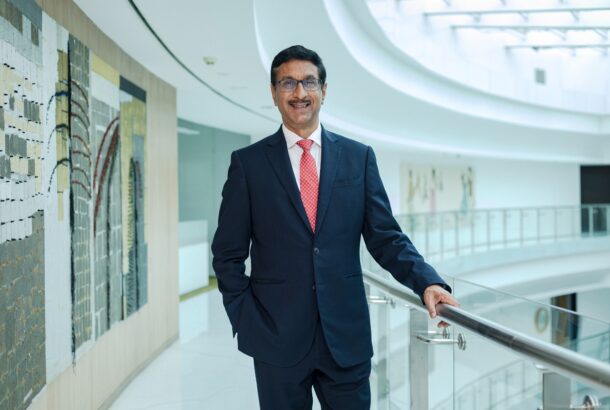Bringing steel expertise and decarbonization ambitions – LeadIT welcomes JSW Steel.
JSW Steel is one of India’s biggest steel producers, and alongside SAIL and Tata Steel makes up the top three steel companies in the country. We are delighted to welcome them to LeadIT strengthening the Group and bringing tangible commitments to decarbonization.

Green Goals
India is the world’s second largest producer of steel after China and demand for steel in the country is projected to grow significantly as India embarks on large infrastructure and house building projects.
According to figures from the Ministry of Steel India the production capacity has already grown rapidly and JSW Steel has also seen its production capacity grow in recent years. This increase has come with a strong focus on making production greener. JSW steel has made a commitment to be Net Neutral in Carbon Emissions by 2050 with an interim 2030 target of a 42% reduction in CO₂ emissions. The company is focusing on the following technological pathways to help it achieve this ambition:
- Energy transition maximising the use of renewable energy in steel making
- The use of ‘green’ hydrogen in steel manufacturing
- Carbon capture, usage, and storage (CCUS)
- Increased use of scrap-based electric arc furnaces
- The use of syngas and top gas recycling blast furnaces (TGR)
JSW Steel has partnered with JSW Energy, also part of the JSW Group, to develop and supply green hydrogen at its manufacturing works at Vijayanagar which when operational will be used to produce green steel.
Read our Q&A with Jayant Acharya, JMD and CEO of JSW Steel where he outlines his vision for a greener Indian steel industry.

Why did JSW Steel decide to join LeadIT
At JSW Steel, we believe that the transition to a low-carbon economy is not just a necessity but an opportunity to lead global change. Joining LeadIT was therefore a natural step for us. It aligns with our ambition to be a frontrunner in sustainable steelmaking. LeadIT provides a credible, action-driven platform where leading governments and industries collaborate to achieve the Paris Agreement goals. We wanted to be part of a community that is serious about accelerating the transformation of hard-to-abate sectors, or rather – what we like to call necessary-to-abate sectors, like steel
What tangible outcomes do you hope will come from being part of the Group?
Through our membership, we aim to achieve tangible outcomes on multiple fronts:
- Access to collaborative opportunities for technology development and deployment
- Accelerate policy frameworks that enable low-carbon steel production and demand
- Mobilization of investments for green steel initiatives
- Acceleration of best practices and innovation across value chains
Ultimately, we want our engagement to lead to real-world reductions in emissions and the creation of a thriving low-carbon steel market globally and in India.
How will membership support JSW Steel’s net zero ambitions?
JSW Steel has committed to become Net Neutral in carbon emissions by 2050 with a near term reduction of 42% by 2030 from the base year of 2005. Lead IT brings together thought leaders, policymakers, innovators and various industry representatives focused on industry transition. Being part of this group supports our net-zero journey by giving us access to global knowledge-sharing, partnerships for technology development, and a collective voice to advocate for the necessary policy and financial enablers. It will strengthens our ability to fast-track decarbonization initiatives, and ensure we stay on track toward achieving Net Neutral in carbon emissions by 2050.
What is your vision of the future of steel production in India?
India is growing at an exceptionally fast pace, and we are fortunate to be part of this economic journey. As we see it there are at least two decades of sustained growth ahead, much like the growth cycles witnessed in Japan, Korea, China, Europe, and the U.S. This is a pivotal moment, where India’s development is driven by structural enablers such as infrastructure creation—both physical and digital—underpinned by strong government initiatives. The future of steel production in India will be powered by renewable energy, innovative low-carbon technologies, and a strong circular economy approach. We will see deeper collaboration between industry and government, with policies that support green procurement and large-scale deployment of clean technologies. I envision India to achieve true self-reliance in all aspects of green steel manufacturing.
What will JSW Steel bring to the Group and other members?
JSW Steel brings a strong commitment to action, innovation, and collaboration. We offer practical experience in deploying large-scale sustainability projects, a willingness to invest in next-generation technologies, and a passion for shaping progressive policy dialogues. We are eager to share our learnings, collaborate on technology co-development, and jointly advocate for enabling ecosystems that make green steel mainstream. We also aim to be a catalyst in increasing demand for sustainable steel by engaging customers, value chains, and markets across India and globally.
